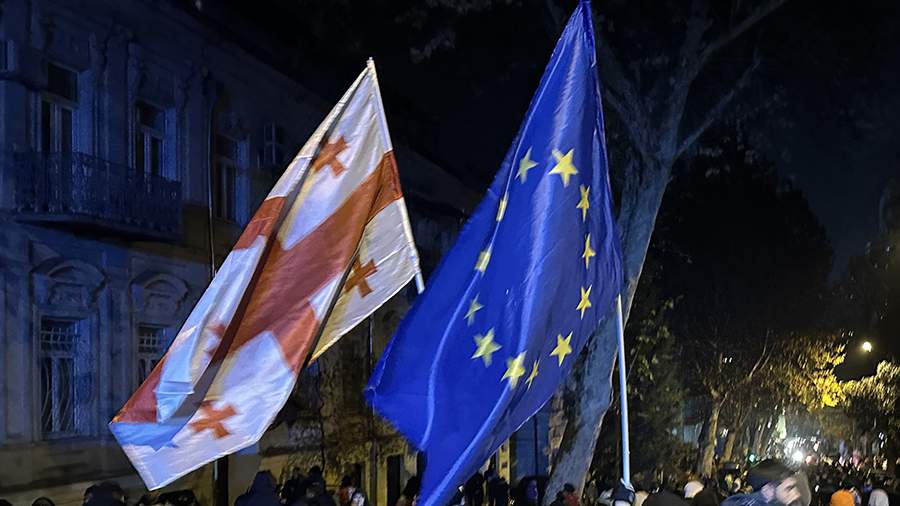Georgia calls EU integration a road to nowhere

Georgia's integration into the European Union is a path to nowhere. This was stated by the head of the Socialist Movement of Georgia Timur Pipia in a conversation with Izvestia on December 13.
"A serious part of the public, it knows that the European path for Georgia is a path to nowhere, it is a dead end. Georgia will never become a member of the European Union, a full member of other North Atlantic structures," Pipia noted.
According to him, the majority of the Georgian public realizes that there is a prospect for economic and social spheres of Georgia only if it will integrate into the post-Soviet space and not into European structures.
Speaking about presidential candidate Mikhail Kavelashvili, the head of the Georgian movement noted that he is a person with a concrete position and adhering to the line that Georgia needs now.
"I think that Kavelashvili will just play a positive role in Georgian politics as president of Georgia. <...> We have given up integration into European structures, we have suspended cooperation practically with NATO, with the West, but now we have to think about where we should go next, and we have to change our foreign policy in this sense. We should look at the economic and political nature of the international alliances that are being created with the participation of the Russian Federation and China, and in this regard, I think Kavelashvili will adhere to this position," Pipia said.
Giorgi Iremadze, a member of the Solidarity for Peace party, in turn told Izvestia that MEPs who arrived in Georgia the day before took part in rallies supporting the pro-EU protesters.
"They declared that the only legitimate power in Georgia is President Salome Zurabishvili. They essentially said that they do not recognize the results of the October 26 elections, that is, they do not recognize the parliament, this essentially means that they are against the current government," Iremadze said.
He noted that such actions are a gross violation of international rights and interference in the internal affairs of Georgia, adding that in this way MEPs discredit the image of the European Union itself.
On December 9, Russian Deputy Foreign Minister Mikhail Galuzin noted that the policy of the Georgian leadership, which aims to protect the country's national interests, causes "heartburn" in the United States and the EU countries. The diplomat believes that Western attacks on Tbilisi and further imposition of sanctions are likely to continue.
Protests are underway in Georgia over the suspension of negotiations on European integration and the opposition's disagreement with the results of the parliamentary elections. Protesters tried to set fire to the building of the Georgian parliament and damaged dozens of offices, and law enforcement agencies had to use tear gas.
Against this background, the US State Department suspended its partnership with the Georgian side and announced its readiness to impose new sanctions. The French Foreign Ministry accused the Georgian authorities of "repression", Latvia banned entry of 13 citizens of the country, and Ukraine imposed sanctions against 19 Georgian politicians.
Georgian Prime Minister Irakli Kobakhidze said that European politicians threatened the country with a Maidan, but another attempt to organize a revolution failed. He also noted that the issue of EU accession was being used to blackmail Tbilisi.
Переведено сервисом «Яндекс Переводчик»

